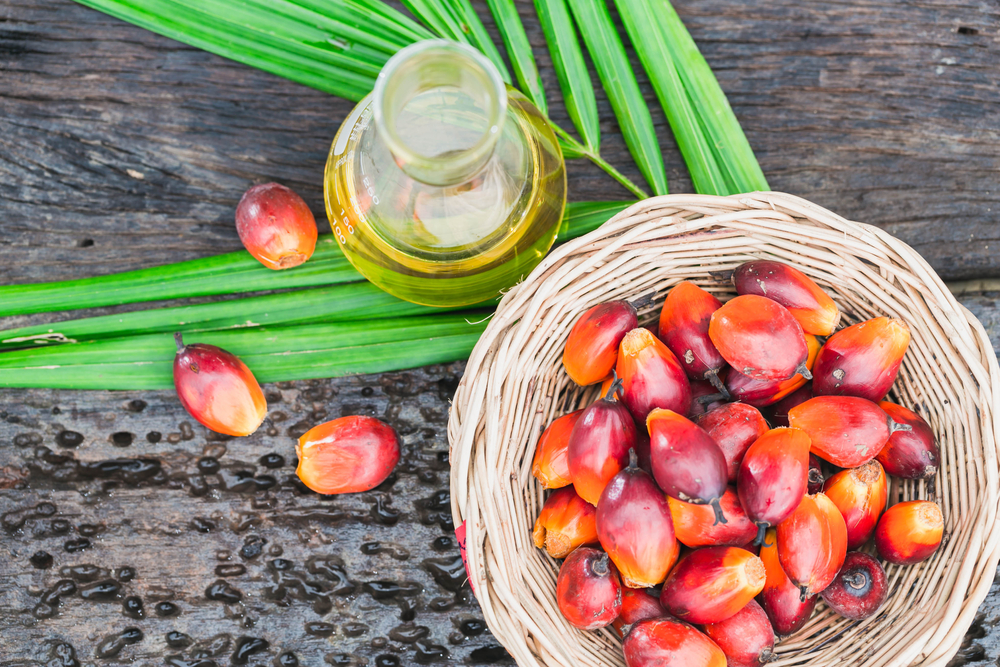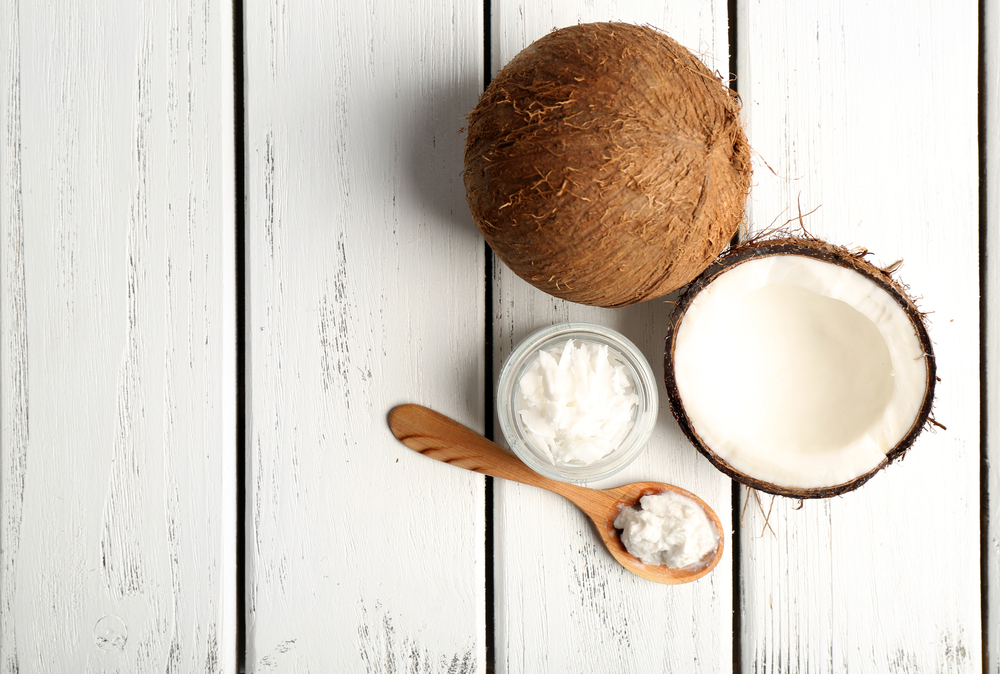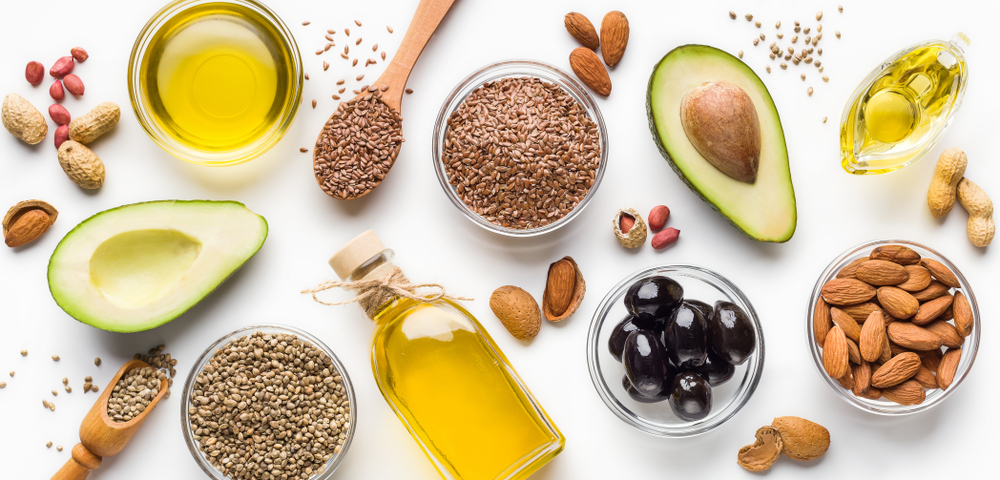Wondering what the most and least healthy cooking oils are?
A lot of people make the common mistake of “stigmatizing” the word “fat,” especially when they are trying to have a healthy diet. But despite what you may have heard during the past few years, fat is not a bad thing and our bodies need it to absorb certain fat-soluble nutrients such as vitamins A, D, and K, along with beta-carotene, which is an important antioxidant that helps prevent skin cancer. Among all these awesome properties, fat contributes to satiety because, together with proteins, our bodies digest fats slower than carbohydrates, and this can help you feel full for a long period of time.
Did you know that oil has been referred to as “the golden liquid” since ancient times thanks to its remarkable properties for promoting cell growth and nutritional value? About 5,000 years ago oil was produced on a regular basis in Egypt, Palestine and later in Greece and it was almost worshipped because of its divine powers.
Even Alexander the Great believed that if he would anoint himself with oils before meetings and public speeches he would never lack self-confidence during all the debates. There are numerous references to oils as a medicine, fuel, a substitute for soap, and a cosmetic product. It was only many years later that it became a household staple to cooking.
If you like cooking with oils, then you are on the right path. But do you know which one is ranked as the best to cook with? Let’s find out together what oils we should choose and which ones we really need to avoid because they are less beneficial for our bodies.

Oils to avoid
1. Palm Oil
All around the world, the consumption of palm oil is increasing despite the fact that it’s a highly controversial food. Because I like to do a little research about every food I want to consume, I’ve read a lot of articles where its benefits are mentioned. And many of them are pretty amazing, such as lowering the risk of heart attacks and blood pressure.
Palm oils are composed of mostly saturated fats, and because they’re a semi-solid product, they have been mostly used in processed foods. As a result, if you prefer to cook at high temperatures, palm oil should not be your first choice, especially if you are trying to avoid oils with a high saturated fat content in your diet.
2. Lard
For a lot of people, lard is associated with negative health effects such as high blood pressure or “exploding triglycerides,” which mostly lead to serious heart conditions. This is the most obvious reason that lard has not been used that much in the kitchen over the last few decades. I almost remember the times when my grandpa used to spread it on toast like butter, and I never found it weird because I thought it was healthy. Little did I know!
One tablespoon of lard contains 20% of your day’s total fat allocation and 25% of your saturated fats. However, in a lot of regions of South America, lard is used as a main ingredient when it comes to cooking, and a lot of people are choosing it as a replacement for regular oils. What about you? How often do you cook with lard?
Oils to include in your diet
1. Olive Oil
Known for its health benefits, versatility, and rich flavor, olive oil is one of the best ingredients you could have in your kitchen cupboard. Part of a Mediterranean diet, it is a traditional fat that has been a dietary pattern for some of the healthiest populations in the world.
It’s easy to use it for baking, frying, and as a salad dressing, and besides this, it has some amazing health properties because it’s loaded with omega-3 fatty acids and antioxidants that protect you against heart disease. Furthermore, it’s interesting to note that multiple research studies have discovered that one of the mechanisms behind olive oil’s benefits is its ability to fight against inflammation, and there might be a possible association between regular use of olive oil and decreased levels of CRP and interleukin-6, two inflammatory markers.
However, despite the fact that it has so many amazing benefits, olive oil is high in calories, and if it’s not consumed with moderation, it might have the opposite effect and make you gain weight.

2. Coconut oil
As with any food, there are positives and negatives, and each person has their own nutritional requirements and things they are allergic to or simply wish to exclude from their diets. Like palm oil, coconut oil stands among the most controversial oils, and people still wonder if it’s OK to consume it or not. Being mostly a saturated fat, coconut oil can withstand higher temperatures than other oils, making it one of the best oils for cooking because it gives a delicious taste and amazing texture to your foods.
Have you ever tried to add some to your pan while doing those awesome pancakes of yours? I am sure you’d be surprised at how naturally sweet this oil is, and you won’t need to add extra sugar to them. In conclusion, the consumption of coconut oil has a lot of benefits for your health, mostly because of its high content of lauric acid, which is a saturated fat that helps you improve your health. However, as with all cooking oils, you should still consume it with moderation.
3. Avocado Oil
Are you a fan of avocados? If so, have you ever tried to cook with avocado oil? Maybe it’s time to give it a shot because I can guarantee that it tastes delicious! Unlike other fruits, avocados are super healthy and rich in fats and antioxidants that actively reduce cholesterol and improve heart health. That’s why adding avocado oil to your diet might be a very good idea!
It’s a natural oil that’s pressed from the pulp of an avocado, and almost 70% of it contains Omega-3 and Omega-6 acids, which means it has excellent nutritional value and can be safely used for cooking at higher temperatures. Furthermore, it also has a higher smoke point compared to any type of extra virgin olive oil, so you can safely use it even in your deep fryer, which usually requires cooking at higher temperatures.
4. Sesame Oil
Sesame oil is one of the best oils on our list and is probably one of the most common ingredients in Asian cuisine because of its amazing taste. Its scientific name is “Sesamum indicum” and it is a member of the Pedaliaceae family, a group of plants that are harvested for their seeds. In most cases, sesame oil is made from pressed seeds, and it has a lot of awesome cosmetic, culinary, and medicinal uses.
Being a polyunsaturated fat, sesame oil has anti-inflammatory and antioxidant properties that help you lower your cholesterol levels and protect you from cardiovascular diseases. You must know that, because of its strong smell, some people find it difficult to cook with sesame oil at high heat. That’s why it’s mostly used in marinades and sauces.
How do you prefer it? Do you use any of these oils mentioned above? If so, tell us which one is your favorite.

Bottom line:
We all need some fats in our diet because they can help get the right balance of cholesterol levels and also keep triglyceride levels as normal as possible. If you are suffering from heart disease or you have high blood pressure, your doctor probably recommended that you take care of yourself, not get upset easily, and also follow a healthy diet. Take care of your body and start including these amazing oils in your diet starting today!
You won’t believe how easy it is!
For some more great tips regarding nutrition, we also suggest reading Wow: These 12 Amazing Foods Will Help You Lose Belly Fat.







